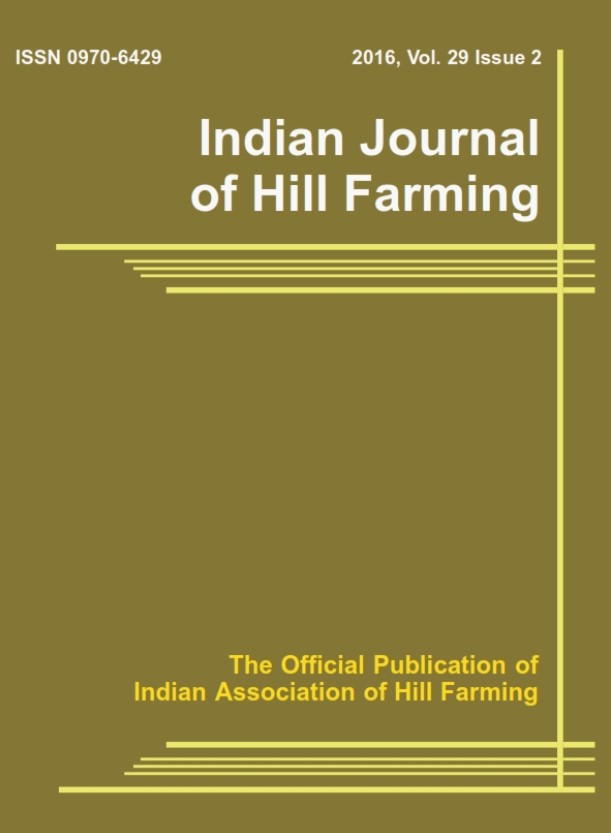Evaluation of some fungal based biopesticides against blister beetle in okra under mid altitude hills of Meghalaya
Keywords:
Beauveria bassiana, blister beetle, Metarhizium anisoplae, neem oil, okra, vermiwash.Abstract
The field trials were carried out at ICAR RC for North Eastern Hill Region, Umiam, Meghalaya to assess some fungal based biopesticides against blister beetle in okra during kharif seasons of two consecutive years (2019 and 2020). The experimental trails were laid out in randomized block design. The okra seeds (Var: Nishita) were sown in 5 m × 3 m plot with 60 cm x 50 cm spacing and each plot was replicated thrice. Two sprays of commercial products (except vermiwash) of neem oil 0.03% (3ml/l), Metarhizium anisoplae (5g/l), Beauveria bassiana (5g/l), Lecanicillium lecanii (5g/l), Bacillus thuringiensis (2g/l), vermiwash (100 ml/l) were applied along with control (water spray) at 14 days intervals with initiation of blister beetle on okra. Pooled results of the two years data showed that neem oil recorded minimum number of blister beetle (0.38 beetles/plant) that was closely at par with Beauveria bassiana (0.39 beetle/plant) with 52.28 and 49.68% reduction of beetle population respectively over untreated control (0.78 beetles/plant). Next best treatment was Metarhizium anisoplae (0.47 beetle/plant). Lowest percentage of flower damage (8.22%) was recorded in the plots treated with Beauveria bassiana with 53.46% reduction followed by neem oil (8.49% flower infestation) and Metarhizium anisoplae (9.52% flower infestation) with 52.15 and 46.03% reduction respectively over untreated control (17.68%). Highest pooled yield of marketable okra (104.6q/ha) was recorded in Beauveria bassiana treated plots followed by neem oil (103.6q/ha) and Metarhizium anisoplae (98.9q/ha).




